The lure of alternative professions might be attracting the young and educated Kolis, but they aren't ready to give up on tradition just yet
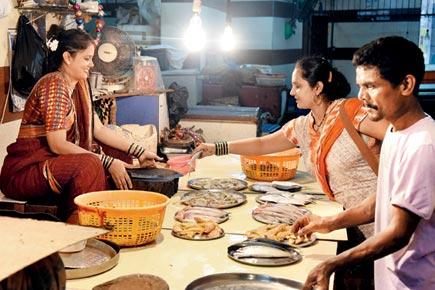
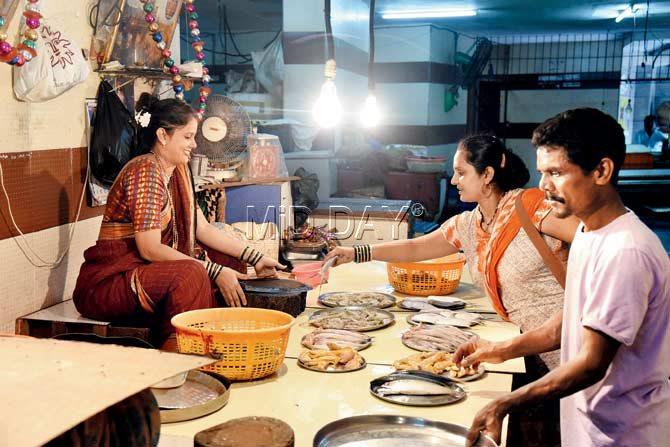
ADVERTISEMENT
Khar Danda resident, Hema Chamur's family has been in the business of fishing for as long as she can remember. While the men in the family would head out to sea at the crack of dawn, the women were designated with the task of selling the catch. "When my grandmother would head to the Khar Danda market to sell fish, I'd tag along," she says. The family had its designated spot to conduct business. As a child, she would watch them sort prawns from the mackerel, negotiate prices with customers and, at the end of the day, store the excess fish on a slab of ice in the storage facility at the market. "I had internalised the process before I even knew it," says the 34-year-old.
Today, Hema runs a salon at Khar while juggling the traditional family business. "I am as passionate about the fish business as I am about my salon. And this isn't a dictat from the family, we are doing it because it's part of our ancestry and ingrained in our cultural DNA," she says. Incidentally, Hema's marriage to Yatin Chamur seven years ago, proved to be in sync with her own interests. Yatin, who owns a fish business, also works as a fitness trainer at an Andheri gym. "Luckily for me, my husband was supportive about both ventures. In fact, he sometimes helps deliver fish to my clients," she laughs.
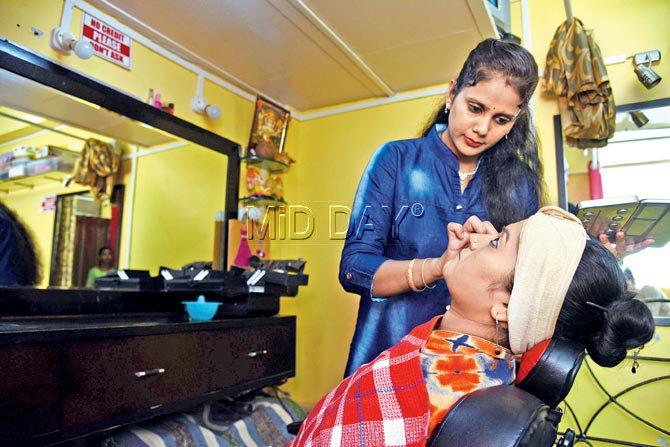
Hema Chamur runs a salon at Khar while juggling the family fish business. Pic/Rane Ashish
A close-knit community
The Kolis are a traditional fishing community dispersed all over the city, especially the western coast of Mumbai. And, even today their mainstay continues to be fishing. "Our links with Mumbai date back to the time when it was an archipelago. Since then, my family has been in the fishing business," says Manish Koli, also a professional footballer. In fact, five years ago, when Koli, a resident of Madh Island, decided to take up football as a profession, many in the community were puzzled. "They would ask me why I'd choose an alternative career when I had a full-fledged fish business in place?" he says. At the time, although Koli was interested in the family business, it was only after his father's paralytic attack two years ago, that he dived into it headlong. The 25-year-old who has represented Air India and Union Bank at football tournaments in the past, however, continues to squeeze time out of his schedule to make time for the sport. But, Koli's family has not been in favour of him playing football due to the injuries he has sustained during the game. "I admit juggling both is tougher than I ever imagined," he says. The Chamurs agree.
Thrice a week, Hema and her sister head to Crawford Market to buy fish in bulk and sell the bounty at Khar. While mornings are dedicated to selling fish, her salon shift starts only post noon.
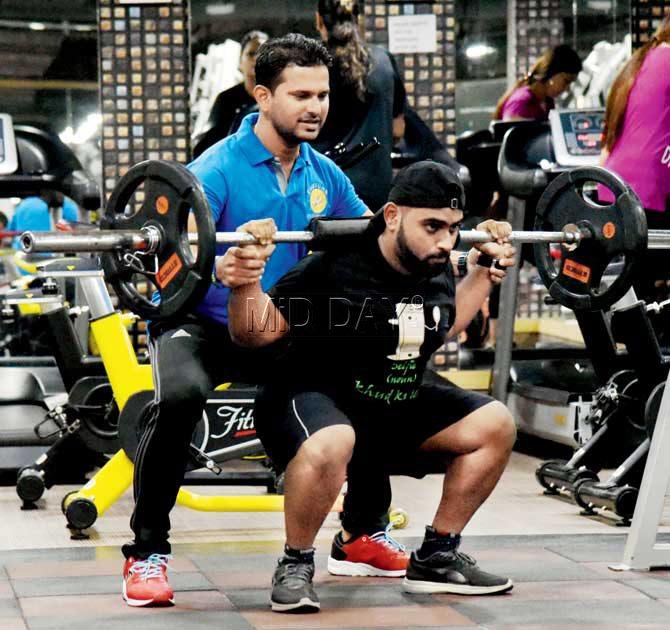
Yatin Chamur has opted for the morning shift from 6 am to 2 pm at the gym so that he can take care of their baby. Pic/Rane Ashish
Yatin, on the other hand, has opted for the morning shift from 6 am to 2 pm at the gym so that he can take care of their eight-month-old baby girl. Support from in-laws has made both their jobs easier. "Buying fish and selling it the market is mainly a morning activity. You get free by noon, and that gives you time in hand. It's tough to manage both, but we have worked out our schedules accordingly," says Yatin.
"My clients are aware of my double job, so they insist that I go along for fish shopping sprees with them," she says. To stay on top of her game, Hema ensures there's no trace of fish smell on her person. "I'm glad my mother was the stickler she was about our appearance and cleanliness. Thanks to her, I've developed a slight OCD about this aspect," she laughs.
Like Yatin's family which own two boats in Khar Danda, the Kolis owns two large trawlers that are managed by workers employed by the family. The boats usually go into deep sea — over 100 km sometimes — and all the way up to Gujarat and Jafrabad and return to Mumbai shores after a week. Koli has to wake up at dawn to look into the fish business, where activities normally start at 4 am. "It's only after I took on the business two years ago, I realised the number of details one needs to look into." His to-do includes briefing the workers of the days' activity, managing their meals while at sea, looking into the maintenance of the boat, keeping tabs on finances and ensuring safety of his staffers and the boat. The youngster still takes tips from his father on how to manage the business and get the workers to take him seriously.
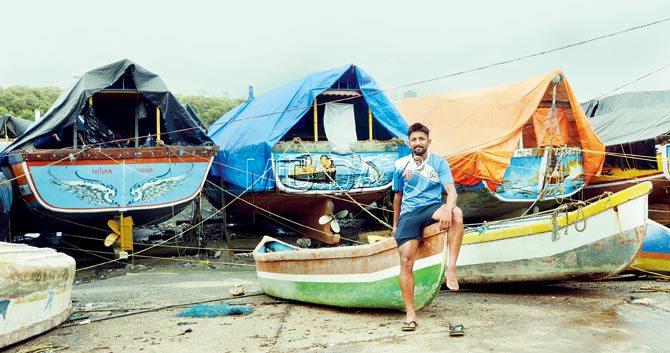
Manish Koli, a professional footballer, also handles his family fishing business. Pic/SatejâÂu00c2u0080Âu00c2u0088Shinde
Against the tide
With increasing emphasis on education, urban development and the drop in the availability of fish, many youngsters from the Koli community are drifting to other professions. "Business is no longer what it used to be due to pollution, climate change, decline in native fish species and rise in diesel prices," Yatin explains. Despite this, not a single family in Khar Danda, he says has let go of their traditional fishing business.
"The sea, for us, is not just a pretty place, it's a way of life. It has been a source of livelihood for generations, and I feel a sense of responsibility in keeping the legacy going," smiles Hema.
 Subscribe today by clicking the link and stay updated with the latest news!" Click here!
Subscribe today by clicking the link and stay updated with the latest news!" Click here!






